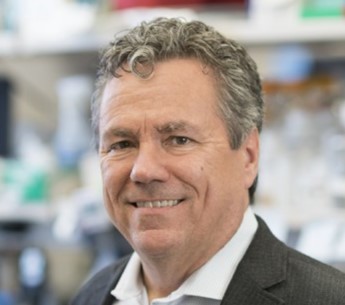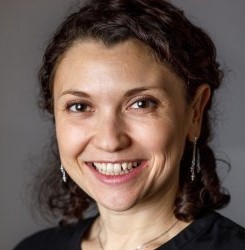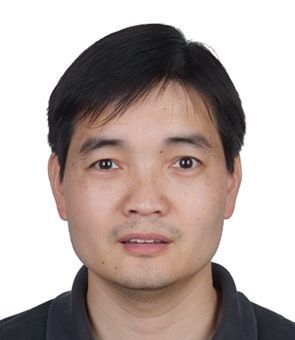- Home
- Past Conferences
- 2nd Animal Models of Cancer Conference
2nd Animal Models of Cancer Conference
From Cancer Genetics to Precision Oncology #AMC25
26 Feb - 01 Mar 2025
Punta Cana, Dominican Republic
-

Kevin Haigis
Dana-Farber Cancer Institute
-

Julien Sage
Stanford University
Early Bird - Expired • Talk Submission - Expired • Poster Submission - Expired • Registration & Payment Deadline - Expired
Report
The second Fusion conference on Animal Models of Cancer took place on Feb 26-March 1 in La Romana, in the Dominican Republic. Following the theme of the conference, the majority of the presentations focused on the use of genetically engineered mice to generate relevant models of human cancer, but models in pigs, naked mole rats, and rats were also discussed. The use of organoids and allograft/xenograft models often complements genetically engineered mice, providing ex vivo and simpler models. The cancer types discussed included lung cancer, pancreatic cancer, colon cancer, melanoma, liver cancer, and prostate cancer.
Some notable aspects of the conference included: (1) the generation of new models and new combinations of genetic alterations to provide models that are representative of the diversity of subtypes of human tumors, for example in the lung or the liver. These new models include now classic Cre/Lox models, but also Dre/Rox and new ways to control the activity of cancer genes spatially and temporally; (2) new genetic means to investigate intra-tumoral heterogeneity, including by tracing or ablating subpopulations of cancer cells; (3) studies that highlight the relevance of animal models to investigate cancer metabolism, as well as the interactions between cancer cells and a variety of immune cells – in particular, recent data confirm that mouse models can provide a powerful approach to test immunotherapies; (4) beyond immunotherapies, chemotherapy and targeted therapies can be rapidly tested in animal models, including new drugs such as RAS inhibitors. In this context, animal models can help identify mechanisms of resistance to drugs that are highly relevant to human tumors.
Overall, the scientific interactions during the oral presentations and at the poster sessions were very productive, and there was great enthusiasm to pursue this conference in future years.
- Kevin Haigis (Dana-Farber Cancer Institute) & Julien Sage (Stanford University)
Synopsis
Due to high hotel occupancy levels, we have closed the registration deadline as hotel availability is changing daily. Please contact Chloe to check if any spaces remain available. If you have already registered for the conference, you can no longer extend your stay via your Fusion account. Again, please contact Chloe to check if we can accommodate your extra nights and/or accompanying guests.
The possibility of engineering mice genetically over four decades ago heralded a transformative era in scientific inquiry, including in the cancer research field. Since then, continuous refinements and innovations have propelled the creation of experimentally controllable, genetically precise animal models for an array of human cancers. Recent strides in genome editing technologies have further accelerated the pace of advancement in this domain, serving as a catalyst for reshaping the trajectory of precision medicine for patients with cancer. With the new ability to manipulate genes more rapidly and with a higher throughput, researchers in the field can now delve into intricate but fundamental details of cancer biology. The crux of these technological advancements lies in their capacity to facilitate the functional evaluation of an unprecedented number of alterations found in human tumors. This, in turn, has given rise to pre-clinical and co-clinical platforms that provide invaluable insights into the efficacy of novel therapeutic interventions. These platforms extend beyond mere assessments, allowing for a nuanced exploration of the intricate mechanisms underlying therapeutic resistance—a critical frontier in contemporary cancer research.
For this Cancer Animal Models conference, our focus converges on three pillars, each representing a crucial facet of the expansive landscape before us. The first pillar encapsulates the exploration of novel approaches for the precise manipulation of genetic elements in mice and other animal models. Key objectives are to "humanize" these models and to enable more nuanced in vivo studies of cancer gene functionality. The second pillar continues to focus on fundamental investigations into the mechanisms governing cancer initiation, progression, and metastasis. This includes deciphering the elusive cell type(s)-of-origin of tumors to unraveling the intricacies of tumor evolution, metabolism, and the dynamic interplay with the immune system. Deepening our understanding of the multifaceted nature of cancer also means exploring differences linked to sex or aging. The final pillar explores the pivotal role of genetically engineered animal models in evaluating the efficacy of novel therapeutic approaches, as well as the mechanisms underpinning therapeutic resistance.
This conference will discuss how genetically engineered animal models of cancer continue to be the linchpin in unraveling the complexities of human cancer and charting new frontiers in precision medicine.
Key Topics
- New technologies for cancer modelling
- Modeling the early steps of cancer development
- The tumor microenvironment: metabolism, immune responses, aging
- Mechanisms of metastasis
- Preclinical trials and resistance
Confirmed Plenary Speakers
Scott Lowe (Memorial Sloan Kettering Cancer Center)
UNDERSTANDING AND TARGETING CELLULAR SENESCENCE IN TISSUE PATHOLOGIES
Celeste Simon (University of Pennsylvania)
LEVERAGING LIVER CANCER MODELS TO IDENTIFY NEW DRUG TREATMENTS
Confirmed Invited Speakers
Cory Abate-Shen (Columbia University)
MODELING PROSTATE CANCER METASTASIS IN GENETICALLY ENGINEERED MOUSE MODELS
Iannis Aifantis (NYU School of Medicine)
MAPPING THE LEUKEMIA MICROENVIRONMENT IN TIME AND SPACE
Leila Akkari (Netherlands Cancer Institute)
UNRAVELING MYELOID CELL DIVERSITY IN CANCER
Laura Attardi (Stanford University)
DECIPHERING HOW P53 GOVERNS CELL STATE TRANSITIONS IN CANCER
Karen Cichowski (Harvard Medical School)
PRE-EMPTIVELY COMBATTING THERAPEUTIC RESISTANCE IN RAS PATHWAY DRIVEN CANCERS BY DEVELOPING NOVEL COMBINATORIAL THERAPIES
Gina DeNicola (Moffitt Cancer Center)
AMINO ACID ACQUISITION IN CANCER: MAKE IT OR TAKE IT
Frederic De Sauvage (Genentech)
DISSECTING TUMOR CELL PLASTICITY DURING COLORECTAL CANCER PROGRESSION
Lukas Dow (Cornell University)
ANIMAL MODELS TO REVEAL THE IMPACT OF SINGLE NUCLEOTIDE VARIANTS IN CANCER
Dannielle Engle (Salk Institute)
ABERRANT GLYCOSYLATION MEDIATED REMODELING OF THE PANCREATIC TUMOR MICRO ENVIRONMENT
Marcia Haigis (Harvard Medical School)
CANCER AND AGING
Hongbin Ji (ShanghaiTech University)
DECIPHERING LUNG CANCER MALIGNANT PROGRESSION THROUGH DUAL-RECOMBINASE TRACING
Jos Jonkers (Netherlands Cancer Institute)
ENGINEERED AND PATIENT-DERIVED MODELS OF BREAST CANCER
Nikhil Joshi (Yale University)
IMPACT OF IMMUNE CELLS ON EARLY TUMORS AND HOW THIS SHAPES CANCER EMERGENCE
Chris Marine (KU Leuven)
CELL PLASTICITY AS A DRIVER OF MELANOMA PROGRESSION AND THERAPY RESISTANCE
Pawel Mazur (MD Anderson Cancer Center)
MOUSE MODELS TO INVESTIGATE THE TARGETABLE PROTEIN METHYLOME IN CANCER PATHOGENESIS
Katerina Politi (Yale University)
STUDYING PROGRESSION, RESISTANCE AND NOVEL VULNERABILITIES IN MODELS OF LUNG CANCER
Owen Sansom (Beatson Institute)
USING MOUSE MODELS OF COLORECTAL CANCER TO UNDERSTAND RESPONSE AND RESISTANCE TO THERAPIES
Mallika Singh (Revolution Medicines)
TARGETING THE ONCOGENIC STATE OF RAS: LESSONS FROM TRI-COMPLEX INHIBITORS
Rocio Sotillo (German Cancer Research Center)
DIFFERENTIAL GENETIC INTERACTIONS DRIVE EML4-ALK VARIANT-SPECIFIC LUNG TUMORIGENESIS
Kate Sutherland (Walter and Eliza Hall Institute)
TURNING UP THE HEAT - ENHANCING IMMUNOTHERAPY RESPONSES IN KRAS-MUTANT LUNG CANCER
Tuomas Tammela (Memorial Sloan Kettering Cancer Center)
FUNCTIONAL INTERROGATION OF CELL STATE HETEROGENEITY IN MOUSE SOLID TUMOR MODELS
Target Audience
- Basic scientists studying all aspects of cancer biology
- Scientists and clinicians performing translational work, especially those using mouse models for preclinical studies
- Investigators from the biotech and pharma industries who are interested in state-of-the-art animal modeling approaches
Educational Need
Multi-omic analyses provide an unprecedented view of key features of human tumors. Still, the mechanisms by which human tumors develop and respond to therapy remain challenging to investigate in patients with cancer. Animal models of cancer, including genetically engineered mice, provide an experimental system to investigate the biology of tumors and to evaluate the efficacy and resistance mechanisms associated with specific therapies. This conference will provide a forum for discussion on the past, present, and future of animal models for cancer, in particular the role that these models will play in the era of precision medicine.
To keep up to date with deadlines, grants and programme announcements, please sign up for updates. If you're keen to join us in the Dominican for our biennial genetically engineered mouse models conference, register today to secure your place!
Confirmed Speakers
Chairs

Kevin Haigis
Dana-Farber Cancer Institute

Julien Sage
Stanford University
Plenary Speakers

Scott Lowe
Memorial Sloan Kettering Cancer Center

Celeste Simon
University of Pennsylvania
Invited Speakers

Cory Abate-Shen
Columbia University

Iannis Aifantis
NYU School of Medicine

Leila Akkari
Netherlands Cancer Institute

Laura Attardi
Stanford University

Karen Cichowski
Harvard Medical School

Gina DeNicola
Moffit Cancer Center

Frederic De Sauvage
Genentech

Lukas Dow
Cornell University

Dannielle Engle
Salk Institute

Marcia Haigis
Harvard Medical School

Hongbin Ji
ShanghaiTech University

Jos Jonkers
Netherlands Cancer Institute

Nikhil Joshi
Yale University

Chris Marine
KU Leuven

Pawel Mazur
MD Anderson Cancer Center

Katerina Politi
Yale University

Owen Sansom
Beatson Institute

Mallika Singh
Revolution Medicines

Rocio Sotillo
German Cancer Research Center

Kate Sutherland
Walter & Eliza Hall Institute

Tuomas Tammela
Memorial Sloan Kettering Cancer Center
Programme
Supported by
Venue & Location
Hilton La Romana
Hilton La Romana is an all-inclusive property and is perfectly set on the Dominicans Republic's pristine coast. Lush jungles, gorgeous weather, and expansive beaches invite you to explore the beauty of the island while the resort enchants with daily activities for every age. Explore six restaurants, eight bars and lounges, and 24-hour room service. Relax in oversized rooms with views of tropical gardens or the Caribbean Sea.
Non-motorized activities like kayaking, snorkeling, and windsurfing are free at the resort.
General Information
Venue Rating
★ ★ ★ ★ ★
Currency
US Dollar (USD)
Address
Playa Bayahibe Section B, La Romana, 23000, Dominican Republic
Nearest Airport
Punta Cana International Airport
Hotel Facilities
Six Restaurants (no reservations required)
Eight bars and lounges
Water park
Private beach
Non-motorized watersports
Four ourdoor pools
Daily resort activities
Kids/teens club
Nightly entertainment
Room entertainment
Room services
Fitness center
Please note, If you arrive earlier than 11am on the day you are due to check in, there may be an early access charge of $25USD per person. This fee will give you access to hotel facilities (not including your room). There is no charge for hotel access for those who arrive after 11am.
Location
La Romana is a port city located opposite Catalina Island, and approx 80 km (50 mi) from both Santo Domingo and Punta Cana.
Gallery
If you are interested in this meeting but not yet ready to register, you can sign up for updates here and our team will keep you updated regarding deadline reminders and grant opportunities relating to this meeting only.
If you're interested in sponsoring this conference please contact us.
Conference Manager

Chloe Trundle


Need some help? Chat to the Fusion team today
As a family run business, our dedication runs deep. We’re committed to each other and, even more so, to every attendee’s experience, delivering a level of care and passion that’s truly unmatched.

































































